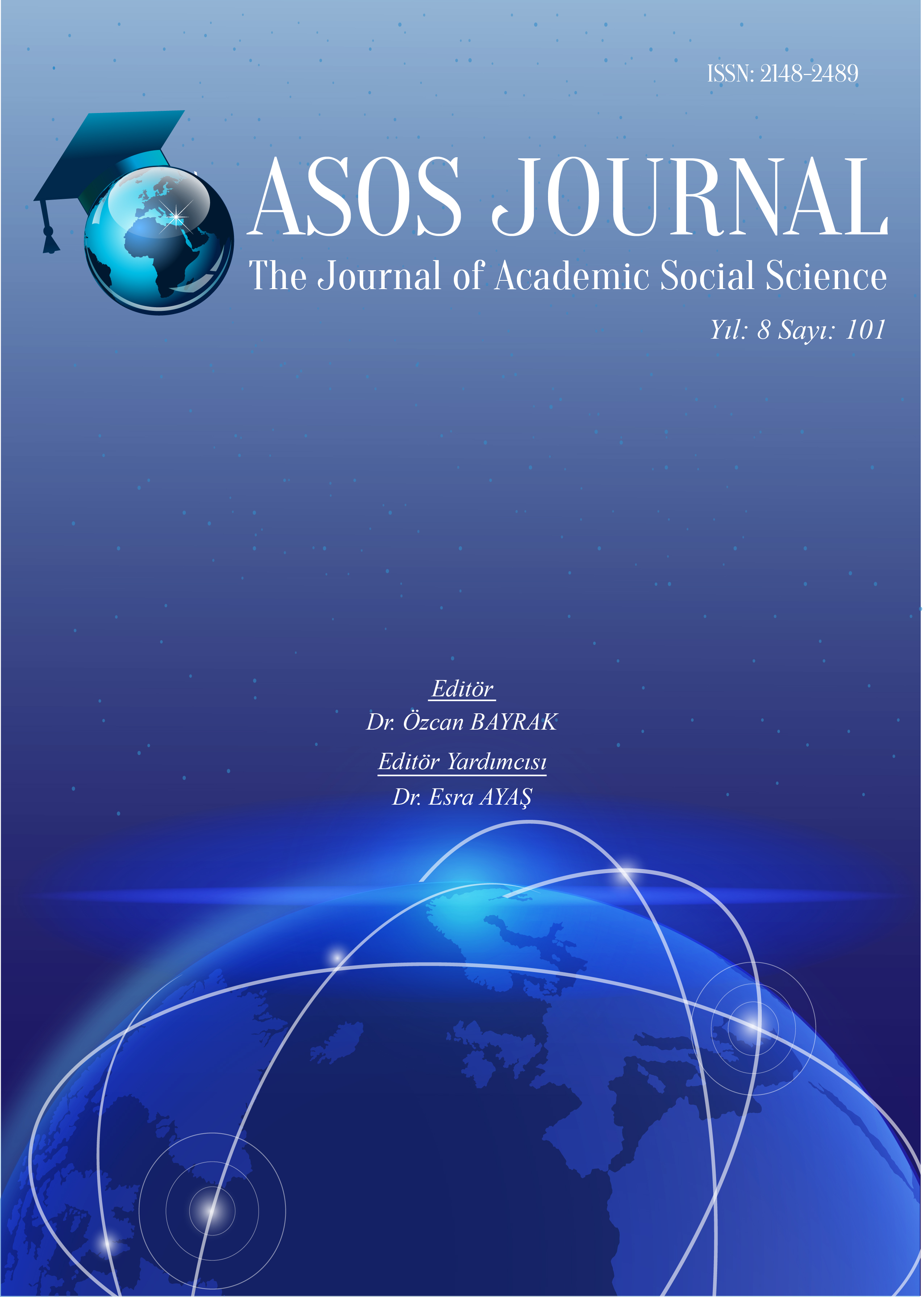SEYAHAT ACENTALARININ OTELLER İLE İŞ BİRLİKLERİNDE KARŞILAŞTIKLARI ETİK PROBLEMLER VE ÇÖZÜM ÖNERİLERİ: KUŞADASI ÖRNEĞİ
Author :
Abstract
Literatürde turizm alanında etik kavramının incelenmesi sonucunda yapılan çalışmaların turizm bölümü öğrencileri ya da çalışanlar ile turistler arasında yaşanan etik sorunlar üzerinde yoğunlaştığı görülmektedir. Bu çalışmanın amacı; turizm sektöründe hizmet veren ve yoğun iş birliği içinde bulunan otel ve seyahat acentası çalışanlarının birbirleri ile yaşadıkları etik sorunların seyahat acentası çalışanları penceresinden Kuşadası örneği ile tespit edilmesi ve bu sorunların çözümüne yönelik öneriler geliştirilmesidir. Çalışma kapsamında bölgede bulunan 17 seyahat acentasında çalışan toplam 37 kişinin görüşü yarı yapılandırılmış mülakat yöntemi ile alınmıştır. Acentaların seçimi yapılırken hizmet verdikleri pazarlar açısından farklılık gösteren işletmelere ulaşılmaya özen gösterilmiştir. Kişi seçimleri yapılırken ise minimum 5 yıl sektör tecrübesi bulunan ve otel çalışanlarıyla birebir irtibat kuran personeller ile görüşülmüştür. Yapılan görüşmeler sonucunda bazı pazarlarda hizmet vermekte olan acenta çalışanlarının oteller ile etik problemler yaşamadıkları ya da nispeten diğer pazarlarda hizmet verenlere göre daha az problem yaşadıkları tespit edilmiştir. Bu durum daha fazla etik sorun yaşayan acentalar tarafından belirtilmiş olan pazar ayrımcılığı problemini destekler niteliktedir. Bununla birlikte görüşmeye katılan bazı kişilerin kavram karmaşası yaşadığı anlaşılmıştır ve bu sebeple açık uçlu sorular yerine verilerin anket yolu ile toplanarak konunun daha detaylı incelenmesi gerektiği tespit edilmiştir.
Keywords
Abstract
In the literature, it is observed that the studies conducted in the field of tourism as a result of the study of ethics focuses on the ethical problems experienced between the students of tourism department or the employees and tourists. The aim of this study is; to determine the ethical problems experienced by the hotel and travel agency employees who work in the tourism sector with the cooperation of the travel agency staff with the case of Kuşadası. In the scope of the study, 37 people working in 17 travel agencies in the region were interviewed by semi-structured interview method. During the selection of agencies, care was taken to reach enterprises that differ in terms of the markets they serve. In the selection of the people, the personnel who had minimum 5 years of experience in the sector and who had contact with hotel employees were interviewed As a result of the interviews, it has been determined that the agency employees who serve in some markets do not experience ethical problems with hotels or have less problems compared to those serving in other markets relatively. This situation supports the problem of market discrimination, which is stated by agents who are experiencing more ethical problems. However, it was found that some people who participated in the interview experienced a complexity of concept and therefore it was determined that the data should be examined in more detail by collecting the data instead of open-ended questions.
Keywords
- Akbaba, A; Erenler, E, (2011), “Etik Karar Verme ve Cinsiyet Farklılıkları Üzerine Bir Araş- tırma”. Dumlupınar Üniversitesi Sosyal Bilimler Dergisi, 447-464.
- Akıncı V. Z; Coşkun, G, (2011), "Kurumsal Sosyal Sorumluluk ve Etik . Gümüşhane Üniversitesi İletişim Fakültesi Elektronik Dergisi", 61-87.
- Akova, O; Çalık, İ, (2008), "Turizm Eğitimi Alan Öğrencilerin Etik Algılamaları Üzerine Bir Araştırma", Sosyal Bilimler Dergisi, 1-13.
- Atınç, O; Özkan, B; Göçebeler, M, (2018), "Konaklama ve Seyahat İşletmelerinde Yaşanan Etik Sorunlar Üzerine Kavramsal Bir Çalışma", Gaziantep University Journal of Social Sciences, 1-11.
- Batman, 0 (2015) ‘’Otel İşletmelerinin Yönetimi’’ Sakarya: Değişim Yayınları Brickley, J; Clifford, W; Jerold, L, (2002), “Business Ethics and Organizational Architecture", Journal of Banking&Finance, 1821-1835. Cheung, R; Lam, P, (2009), "How Travel Agency Survive in E-Business World. Communications of the IBIMA",, 85-92. Çetin, B; Köseoğlu, M.A., “İş Etiği ve İş Etiğinin Yayılım Süreci”, SDÜ, İİBF Dergisi, Cilt:13, Sayı:1, (2008), 145-158. Dertürk, K. (2017, Haziran 11). www.gazatekadikoy.com. http://www.gazetekadikoy.com.tr/ kultur-sanat/insan-etik-ve-ahlak-h10733.html adresinden alındı Doğan, N, (2009), "İş Etiği ve İşletmelerde Etik Çöküş". Sosyal Ekonomik Araştırmalar Dergisi, 179-200. Druker, P, (1982). "What Is Business Ethics?", Journal of Business Ethics, 293-300. Emir, O, (2010), "Otel İşletmelerinin Pazarlanmasında Seyahat Acentalarının Rolü: Otel İşletmeleri Tarafından Bir Değerlendirme", Ege Academıc Revıew, 1245-1256. Fleckenstein, M; Huebsch, P, (1997), "Ethics in Tourism-Reality or Hallucination", Journal of Business Ethics, 137-142. Mahmutoğlu, A, (2017), "Etik ve Ahlak: Benzerlikler, Farklılıklar ve İlişkiler", Türk İdare Dergisi, 226-247. Olcay, A; Sürme, M, (2015), Turzm İşletmelernde Yönetici ve Gören Etik Davranılarının Karşılatırılması Üzerine Bir Araştırma. 1114-1131. Pelit, E; Aslantürk, Y, Turizm İşletmelerinin İş Etiğine Yönelik Uygulamalarının Çalışma Yeri Tercihindeki Önemi: Turizm Öğrencileri Üzerinde Bir Araştırma, 163-184. Pearce, D. G; Schott, C, (2005). "Tourism Distribution Channels: The Visitors’ Perspective", Journal of Travel Researchs, 50-63. Şen, L; Çetinkaya, Ç, (2017), "İnovasyonun Küçük Ölçekli Otel İşletmelerinin Performasına Etkisi: İstanbul Örneği", International Journal of Academic Value Studies, 235-243.
- Türnüklü, A (2000). Eğitimbilim Araştırmalarında Etkin olarak kullanılabilecek Nitel Bir Araştırma Tekniği: Görüşme, Eğitim Yönetimi, 543-559.
- Yılmazer, A., & Bahadır, İ. (2011). Otel İşletmelerinde Önbüro Çalışanlarının Etik Algılamalarına Yönelik Bir Çalışma, Sosyal Bilimler Enstitü Dergisi, 21-40.
- www.kulturturizm.gov.tr. (2019, Mart 29). www.kulturturizm.gov.tr: http://yigm.kulturturizm.gov.tr/ TR-9648/seyahat-acentasi.html adresinden alındı
- www.kulturturizm.gov.tr.(2019,Nisan13).www.kulturturizm.gov.tr: http://teftis.kulturturizm.gov.tr/TR-14516/turizm-isletmelerinin-bakanlikla-birbirleriyleve-muste-.html adresinden alındı
- www.meb.gov.tr.(2019,Mart29).www.meb.gov.tr: http://megep.meb.gov.tr/mte_program_modul/moduller_pdf/Turizm%20%C4%B0%C5 %9Fletmeleri.pdf adresinden alındı
- www.meb.gov.tr.(2019,Nisan13).www.meb.gov.tr: http://megep.meb.gov.tr/mte_program_modul/moduller_pdf/Seyahat%20Acentecili%C 4%9Fi.pdf adresinden alındı
- www.tdk.gov.tr.(2019,Nisan7). http://www.tdk.gov.tr/index.php?option=com_gts&arama=gts&guid=TDK.GTS.5ca8f5 3ff1e4a3.42463753 adresinden alındı
- www.tursab.org.tr. (2019, Nisan 14). www.tursab.org.tr: https://www.tursab.org.tr/uye-acentalar adresinden alındı
- www.unwto.org. (2019, Nisan 16). www.unwto.org: http://ethics.unwto.org/sites/ all/files/docpdf/turkey.pdf adresinden alındı
- www.yok.gov.tr.(2019,Nİsan24).www.yok.gov.tr: https://tez.yok.gov.tr/UlusalTezMerkezi/tezSorguSonucYeni.jsp#top2 adresinden alındı





